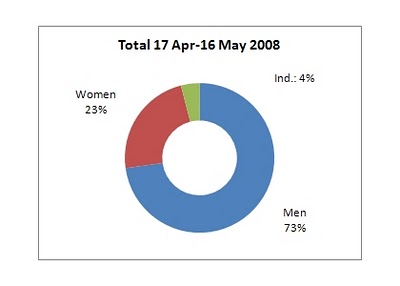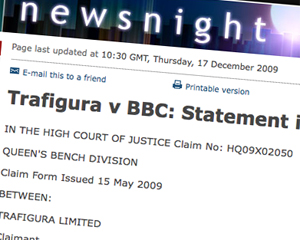Broadcast journalism lecturer at Coventry University John Mair reviews last night’s election coverage from the BBC from his post in the broadcaster’s Northern Ireland election newsroom:
Lunchtime Friday and still no clear answer. The British people have spoken but in a divided way. The politicians are wriggling to get advantage or cling on to power (you decide). The most exciting election campaign of modern times has been followed by the most exciting night of election drama of modern times.
Nowhere was the drama greater than here in Northern Ireland where I was working on election night – the other election, often ignored by those ‘across the water’. First casualty, Northern Ireland’s First Minister Peter Robinson whose 31-year stint as MP for East Belfast ended in stunning defeat by a woman of the centre – Naomi Long of the Alliance Party. Robinson has had an annus horibbulis having to face television investigations announcing his wife’s affair and, after that, his own land dealings came under scrutiny. Last night was his nadir. He rushed to the count at Newtonards Leisure Centre, spoke briefly to the local media and was then ushered out. Now he has gone to ground to lick his wounds and fend off predators.
The Robinson moment was magic telly: milked by the local outputs, but less so by the networks. They wanted more of Lady Sylvia Hermon, who defected from the Unionists when they joined with the UK Conservatives. The Traditional Unionist Voice (TUV) were seen off in what should have been their heartland North Antrim by Ian Paisley Jnr – brands are as important in politics as anywhere else. He and father – who preceded him in the seat for 40 years – showed their contempt for the TUV by singing the national anthem before his victory speech. Worse for ‘moderate’ Unionism, Sir Reg Empey lost out in South Antrim to the Democratic Unionist Party (DUP). The planned Tory beachhead in Northern Ireland became a washout. It was a media confection.
The BBC Northern Ireland Election programme ran for seven-plus hours using all the 18 counts at eight locations as their prime material. Down-the-line interviews galore at the outside broadcasts based on deep local knowledge. The local commercial station – Ulster Television – did not even make it to the starting line. No election news between 10:30pm and 09.30am. That did not go unnoted by fellow hacks.
The BBC’s ‘Dimbleby programme’ had a magnificent set on its side and some pretty special Jeremy Vine virtual reality graphics too – my favourites being the Downing Street staircase or the House of Commons with real faces smiling and nodding. Modern Television journalism is about entertainment and keeping it simple. Nowhere more so than in the use of electronic graphics. All of that plus live reporting from many of the big beasts of telly journalism. It’s fascinating to see how many of them still used the basic journalistic skills, like Kirsty Wark doorstepping/walking besides and interviewing Nick Clegg on the hoof on the way to his count.
It’s difficult from inside my bubble to know how the drama played out in the nations. It certainly kept us rapt in this television control room. You could not have written the script. But the 2010 General Election story has not yet reached its final chapter. Plenty more drama to come…
Read John Mair’s report from the BBC’s TV ‘hub’ in Belfast on the build-up to election night.

 Trafigura and its solicitors Carter-Ruck have now become synonymous with attempts to stifle free expression in the UK. First it gagged newspapers who attempted to report on waste dumping in Côte d’Ivoire with an injunction. Then it attempted to
Trafigura and its solicitors Carter-Ruck have now become synonymous with attempts to stifle free expression in the UK. First it gagged newspapers who attempted to report on waste dumping in Côte d’Ivoire with an injunction. Then it attempted to